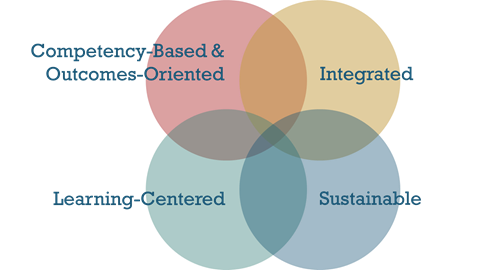Evidence-based principles
The new curriculum and programs is grounded in evidence-based learning sciences and effectively supports new programs and curriculum with the technology, infrastructure, human and financial resources necessary to thrive.
Specific strategies aimed at achieving our desired outcomes include:
- Competency-based curricular structure that provides standardization of learning outcomes but individualization of process through backwards design
- An assessment system that is transparent and continuously incorporating both regular feedback and routine self-reflection on strengths, direction, and opportunities for growth
- Maximally effective educational methodologies including incorporation of technology and active learning strategies
- Programming that promotes relationships with peers, teachers, patients and systems of care
- Integration of foundational, clinical and social sciences content throughout training with progressive complexity and depth as learners progress —known as helical integration
- Required and elective longitudinal curricula to support the formation of identity as an academic leader with skill development in:
- Leadership and teamwork
- Science, discovery, and innovation
- Teaching and learning
- Social determinants of health, community engagement, and advocacy
